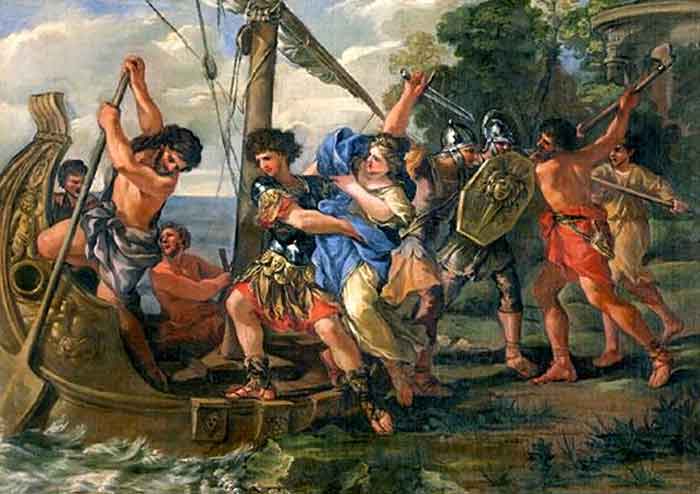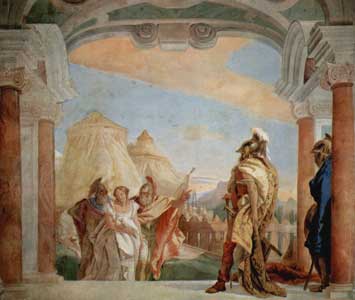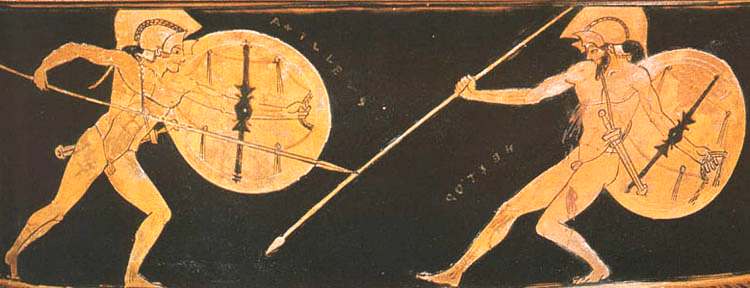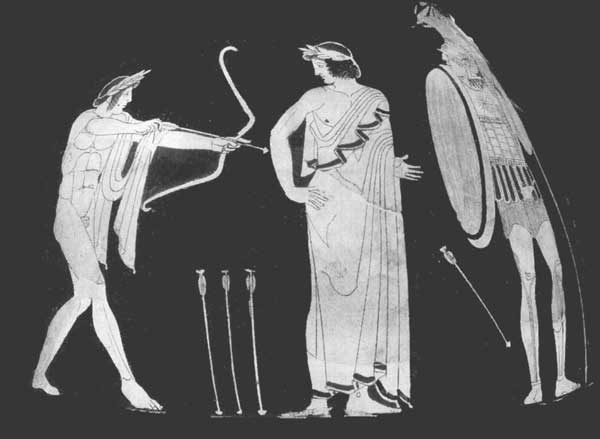“Bill” (also known by
the title “Bill’s Little Girl”) is a short story written in 1927 by Zona Gayle,
an American author who was the first woman to win the Pulitzer Prize for Drama. It
tells of the story of the love for a father named Bill for his daughter Minna—a
love as such that he was willing to let her go.
Billby Zona GayleBill was thirty when his wife died, and little Minna was four. Bill’s carpenter shop was in the yard of his house, so he thought that he could keep his home for Minna and himself. All day while he worked at his bench, she played in the yard, and when he was obliged to be absent for a few hours, the woman next door looked after her. Bill could cook a little, coffee and bacon and fried potatoes and flapjacks, and he found bananas and sardines and crackers useful. When the woman next door said it was not the diet for four-year-olds, he asked her to teach him to cook oatmeal and vegetables, and though he was always burned the dishes in which he cooked these things, he cooked them every day. He swept, all but corners, and he dusted, dabbing at every object; and he complained that after he had cleaned the windows he could not see as well as he could before. He washed and patched Minna’s little garments and mended her doll. He found a kitten for her so that she wouldn’t be lonely. At night he heard her say her prayer, kneeling in the middle of the floor with her hands folded, and speaking like lightning. If she forgot the prayer, he either woke her up, or else he made her say it the first thing in the morning. He himself used to pray: “Lord, make me do right by her if you see me doing wrong.” On Sundays, he took her to church and listening with his head on one side, trying to understand, and giving Minna peppermints when she rustled. He stopped work for a day and took her to the Sunday-school picnic. “Her mother would of,” he explained. When Minna was old enough to go to kindergarten, Bill used to take her morning or afternoon, and he would call for her. Once he dressed himself in his best clothes and went to visit the school. “I think her mother would of,” he told the teacher, diffidently. But he could make little of the colored paper and the designs and the games, and he did not go again. “There’s something I can’t be any help to her with,” he thought.Minna was six when Bill fell ill. On a May afternoon, he went to a doctor. When he came home, he sat in his shop for a long time and did nothing. The sun was beaming through the window in bright squares. He was not going to get well. It might be that he had six months…. He could hear Minna singing to her doll.When she came to kiss him that night, he made an excuse, for he must never kiss her now. He held her arm’s length, looked in her eyes, said: Minna’s a big girl now. She doesn’t want Papa to kiss her.” But her lip curled and she turned away sorrowful, so the next day Bill went to another doctor to make sure. The other doctor made him sure.He tried to think what to do. He had a sister in Nebraska, but she was a tired woman. His wife had a brother in the city, but he was a man of many words. And little Minna…there were things known to her which he himself did not know—matters of fairies and the words of songs. He wished that he could hear of somebody who would understand her. And he had only six months….Then the woman next door told him bluntly that he ought not to have the child there, and him coughing as he was; and he knew that his decision was already upon him.One whole night he thought. Then he advertised in a city paper:A man with a few months more to live would like nice people to adopt his little girl, six, blue eyes, curls. References required.They came in limousine, as he had hoped that they would come. Their clothes were as he had hoped. They had with them a little girl who cried: “Is this my little sister?” On which the woman in the smart frock said sharply:“Now then, you do as mama tells you and keep out of this or we’ll leave you here and take this darling little girl with us.”So Bill looked at this woman and said steadily that he had now other plans for his little girl. He watched the great blue car roll away. “For the land sake!” said the woman next door when she heard. “You done her out of fortune. You hadn’t the right—a man in your health.” And then the other cars came, and he let them go, this woman told her husband that Bill ought to be reported to the authorities.The man and woman who walked into Bill’s shop one morning were still mourning their own little girl. The woman was not sad—only sorrowful, and the man, who was tender of her, was a carpenter. In blooming of his hope and his dread, Bill said to them: “You’re the ones.” When they asked: “How long before we can have her?” Bill said: “One day more.”That day he spent in the shop. It was summer and Minna was playing in the yard. He could hear the words of her songs. He cooked their supper and while she ate, he watched. When he had tucked her in her bed, he stood in the dark hearing her breathing. “I’m a little girl tonight—kiss me,” she had said, but he shook his head. “A big girl, a big girl,” he told her.When they came for the next morning, he had her ready, washed and mended, and he had mended her doll. “Minna’s never been for a visit!” he told her buoyantly. And when she ran toward him, “A big girl, a big girl,” he reminded her.He stood and watched the man and woman walking down the street with Minna between them. They had brought her a little blue parasol in case the parting should be hard. This parasol Minna held bobbing above her head, and she was so absorbed in looking up at the blue silk that she did not remember to turn and wave her hand.
















